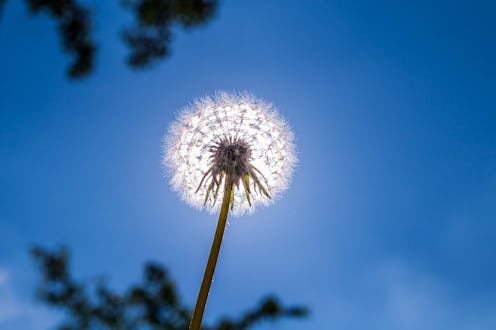Life
How To Fight Allergies Naturally

Allergies can be the bane of our existence. Whether they're seasonal or just from year-round dust and mold, a bad allergy can seriously diminish our quality of life — not to mention allergy medication can get expensive. The good news is there are ways to fight allergies naturally that will build your natural resistance to allergens and help you become less reliant on over-the-counter medications, according to Reader's Digest's Best Health Mag.
According to the Asthma and Allergy Foundation of America, an "allergy is characterized by an overreaction of the human immune system to a foreign protein substance (allergen) that is eaten, breathed into the lungs, injected or touched," and that while approximately 30 percent of adults suffer from nasal allergies alone, it is one of the most commonly overlooked conditions. Additionally, the foundation reported that in 2010, 11.1 million doctors visits were scheduled just for the treatment of indoor/outdoor allergies.
Basically, allergies are kind of a big deal, and those of us who suffer from them spend countless hours trying to get them under control — or worse, have just learned to live with their uncomfortable and inconvenient effects. If you're tired of doctors visits or paying large amounts for over-the-counter allergy medicine, you may want to try natural remedies to help keep your allergies at bay.
Below are seven tips for fighting allergies naturally.
1. Incorporate Probiotics Into Your Routine
A study published by the National Institute of Health found that there is "very promising evidence to recommend the addition of probiotics to foods for the prevention and treatment of allergic diseases." Basically, there's a chance that taking more probiotics will help with your allergies, according to a study published in the Journal of Clinical and Experimental Immunology. If you're interested in giving probiotics a try, you can start by incorporating yogurts that contain live probiotic cultures into your diet, or taking probiotic supplements if preferred.
2. Get More Vitamin C
According to the University of Maryland Medical Center, Vitamin C has natural anti-histamine properties, and a good recommendation is to take 2,000 mg per day. According to Natasha Turner, Toronto naturopathic doctor and bestselling author of The Carb Sensitivity Program, Vitamin C prevents the formation of histamines (aka the things that cause itchy eyes and runny nose) before an allergic reaction even starts, as well as helps break down allergy-caused inflammation.
3. Try A Mediterranean Diet
According to a study featured on ABC News, a Mediterranean diet — one rich in fresh fruits, vegetables, nuts, and whole grains — is linked to lower rates of asthma and allergies, as well as respiratory problems in general. The researchers who conducted the study believe that the antioxidants so highly present in the diet help to control our body's internal reactions to outside allergens.
4. Embrace Spice
In an article on Everyday Health, clinical nutrition consultant Janet Maccaro, Ph.D., said, “Anise, fennel, horseradish, and hot mustard can all act as natural decongestants — they offer allergy relief by stimulating the mucosal cilia to help break up congestion." While these spicy foods won't relieve symptoms permanently, they can definitely help make you feel more comfortable in the short term. Bring on the spices!
5. Eat More Magnesium-Rich Foods
According to an article about supplements to prevent allergies on Prevention, magnesium is a mineral that helps open constricted airways in the lungs and can reduce the amount of histamines in your system. In an Everyday Health article, Carolyn Dean, MD, ND, and Medical Director of the Nutritional Magnesium Association, said, "Magnesium-rich foods, such as almonds, cashews, wheat bran, and kelp are excellent foods for allergy relief." Additionally, a study conducted by Bingham Young University even showed that animals deficient in magnesium had higher rates of histamines in their systems compared to animals with normal magnesium levels, even when they were exposed to the exact same allergens.
6. Use A Neti Pot
OK, I know, a neti pot and "nasal irrigation" can seem kind of gross, but according to CNN, many people swear by their neti pot when it comes to allergy relief. The pots work by flushing a saline solution through your nasal passageway, in theory flushing out pollen and allergens.
Sattvic Path Ceramic Neti pot, $29.99, amazon.com
7. Eat Spirulina
Spirulina is a blue-green algae commonly marketed as a "superfood," and according to a 2005 study published in the Journal of Medicinal Food, ingesting spirulina made a noticeable difference in patients suffering from nasal allergies. You can find spirulina in the vitamin and supplement sections of many grocery stores, as well as purchase in powder form for incorporating into green juices and smoothies.
Allergies can be a huge pain, whether seasonal or year-round, but there are definitely ways to help minimize the effects of allergies on your life that don't necessarily mean relying on daily medication. Incorporating just a few steps into your daily routine could make for a world of difference in your health and comfort!